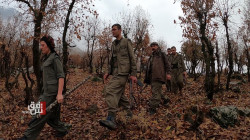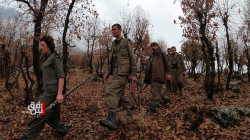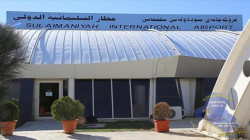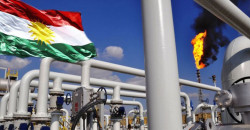Frozen flow: how the Kurdish oil export stalemate is draining Iraq's economy
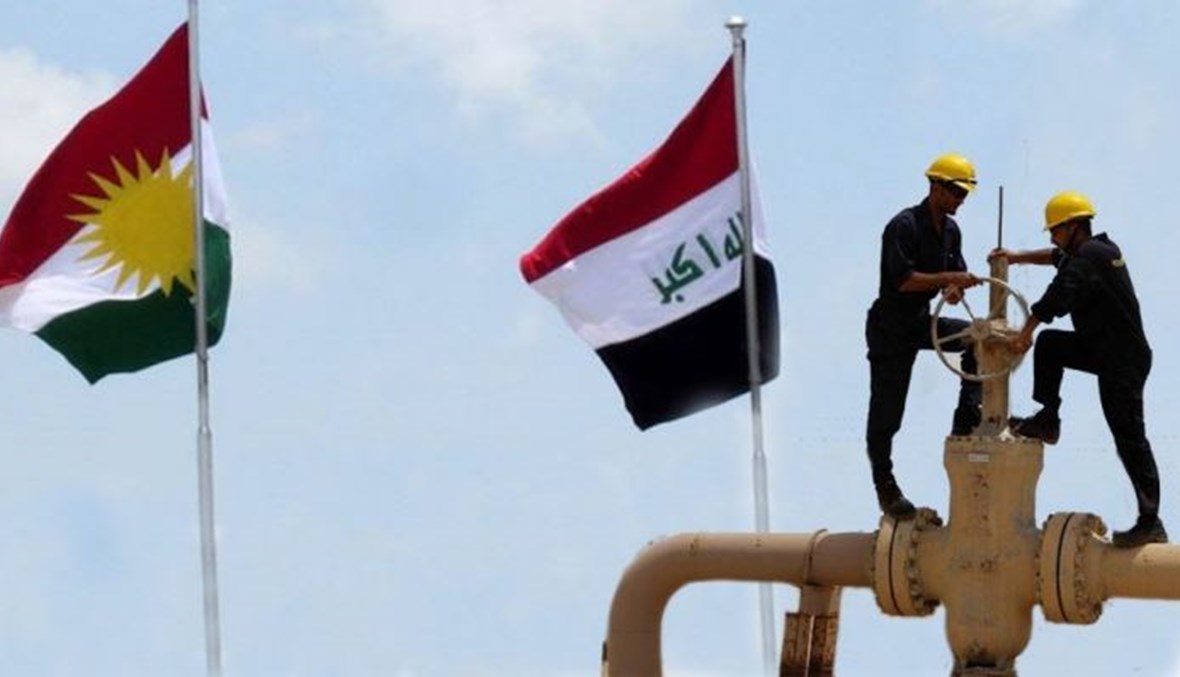
Shafaq News / The repercussions of the delayed resumption of oil exports from Kurdistan and Kirkuk through Turkey's Ceyhan port appear set to have a detrimental impact not only on the Kurdistan region but also on Iraq's general budget, according to insiders. The budget stipulates an export of 3.5 million barrels per day, including 400,000 barrels from Kurdistan and approximately 80,000 barrels from the Kirkuk fields.
On March 25, Turkey halted shipments of Kurdish oil to the Ceyhan port after an international arbitration decision mandated Ankara to pay reparations to Baghdad for violating a 1973 pipeline agreement by allowing the Kurdistan regional government to export oil without the consent of the Iraqi government.
The oil pipeline stretching from the province of Kirkuk to the Ceyhan port is the sole export route for crude oil produced in the northern Iraqi fields.
An interim agreement was signed between the Iraqi government and the Kurdistan Regional Government on April 4, paving the way for the resumption of oil exports. However, Turkey has so far refused to recommence the export of oil from the north through the Turkish Ceyhan port, frustrating efforts to restore the status quo and bring much-needed revenue back to the region.
Oil expert Nabil Al-Marsoumi confirmed to Shafaq News Agency that the "halt of oil exports through the Ceyhan port has lasted over two months, thus the actual monthly losses amount to around one billion dollars after the cessation of exports of more than 470,000 barrels per day."
"According to the general budget, oil exports are supposed to be around 3.5 million barrels per day, but currently what is being exported without Kurdish oil is around 3.3 million barrels per day, meaning the deficit is around 200,000 barrels, which is a loss of around half a billion dollars monthly," Al-Marsoumi continued, warning that "the continuation of the halt will increase Iraq's losses."
Al-Marsoumi called for "resolving the issue of export through the north, which is politically and technically problematic, as the Turkish side pressures Iraq on several matters. These could include a reduction of interest on the fine determined by the International Court of Commerce in Paris, which amounts to 1.5 billion dollars, and also the desire to obtain lower oil prices as the region previously provided to Turkey, or to remain at the transit price of Iraqi oil through the Ceyhan port, which was raised to two dollars per barrel after being one dollar and 12 cents." He pointed out that "Turkey is trying to exert pressure on Iraq over these issues in order to delay the flow of Kurdish oil, and the pressure might increase to possibly even use water discharges to create a kind of geopolitical pressure on Iraq."
He expects that "the final result will be that Turkey will eventually relent in this decision, which is to allow oil exports through the Turkish Ceyhan port because the decision of the International Court of Commerce in Paris is binding and also, the Turks are signatories to the agreements for pipeline transit through their territory. Therefore, refusing this would tarnish Turkey's reputation when it is no longer a secure passageway for the flow of energy, possibly even gas."
Al-Marsoumi pointed out, "the issue of salaries for the region's employees arose after the halt of Kurdish oil exports. According to the agreement, exports are to be made through SOMO, with its financial value placed in a special account. However, the situation has now changed since Kurdistan cannot export oil, creating a significant problem as the Ministry of Oil's capacity to receive 400,000 barrels per day is limited, whether in terms of storage or transportation."
Adding to the complexity, he stated, "From a humanitarian perspective, it is supposed that the salaries of the region's employees should be transferred from the budget, while waiting for the outcome of the solution with Turkey because there are more than 600,000 employees without salaries who are fundamentally Iraqis. This is especially challenging considering that Kurdistan's ability to address this issue appears difficult if the situation were normal and the region was exporting its oil, it could have been possible to cover these salaries."
Farhad Alaaldin, Advisor to the Iraqi Prime Minister for Foreign Relations, stated in press comments, "the Turkish side claims that there are 'technical problems' hindering the resumption of their work." At the same time, he indicated that "the Turkish re-elections might currently be preoccupying the interests of Turkish officials."
Alaaldin added, "Initially, the Turkish side requested to negotiate about the fine, estimated at 1.5 billion dollars, approved by the court, however, they later informed us that the cessation of oil operation through the Ceyhan pipelines is due to technical issues."
"The impact of the region's export halt depends on the actions of the Ministry of Oil because supposedly there are additional quantities of oil that we can't sell due to OPEC agreements. If the ministry uses it, we won't be much affected by this stoppage”, Oil expert Hamza Al-Jawahiri told Shafaq News Agency.
Al-Jawahiri pointed out that "Turkey claims that there are technical reasons behind its refusal to allow the export of oil from the north through the Turkish Ceyhan port so far. However, there may be political pressure on the Iraqi government to give Turkey some concessions due to a fine of 1.5 billion dollars, and therefore the purpose of the ban is still unknown."
He affirmed that "the main reason for not resuming the export of Kurdistan region's oil through Ceyhan port is a set of conditions posed by Turkey."
Meanwhile, the Minister of Finance and Economy in the Kurdistan Regional Government, Awat Sheikh Janab, announced the region's government's inability to pay the employees' salaries for the month of April due to the halt in oil exports.
Iraq requested Turkey earlier this month to resume the pipeline flows and loading operations at Ceyhan on May 13.
For his part, Iraqi Oil Minister Hayan Abdul Ghani announced that the resumption of oil exports from the Kurdistan region would be declared in the upcoming days.
Abdul Ghani clarified that "the Iraqi government has reached the final stages of implementing the agreement with Erbil on the resumption of oil exports from the Kurdistan region." He pointed out that "the oil marketing company that guaranteed the process of receiving and exporting oil from the region is now about to sign contracts with the companies buying the oil."
The Iraqi Oil Minister, Hayan Abdul Ghani, confirmed that Baghdad is still waiting for a final response from Turkey before resuming oil exports from the Kurdistan region of Iraq via the Turkish Ceyhan port. This is following Turkey's notification to Iraq that a technical team is working to evaluate whether the pipeline was damaged due to the devastating earthquake that occurred in February.
An oil official, who preferred to remain anonymous, spoke to Shafaq News Agency, saying that the issue is more political than technical. He expects the resumption of exports to the Turkish Ceyhan port after the completion of the Turkish elections.
The official added that "the BOTAS company itself does not know when approval will be given to resume oil exports." He confirmed that "it has not yet received instructions from the Turkish authorities."
An official in the Kurdistan Regional Government of Iraq revealed earlier this month that a joint delegation from the Iraqi Ministry of Oil and the Ministry of Natural Resources in the Kurdistan government will visit the Turkish capital, Ankara, to discuss the issue of resuming oil exports via the Turkish Ceyhan port. This follows a hiatus of over a month due to an international court ruling.
